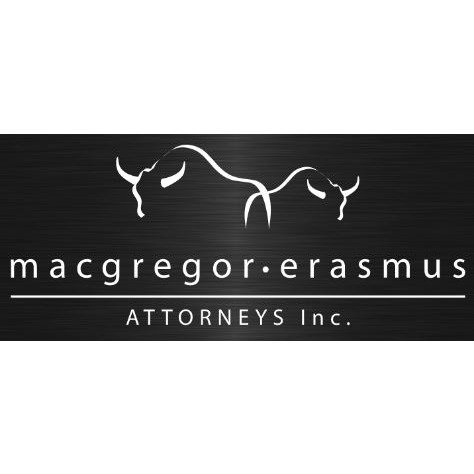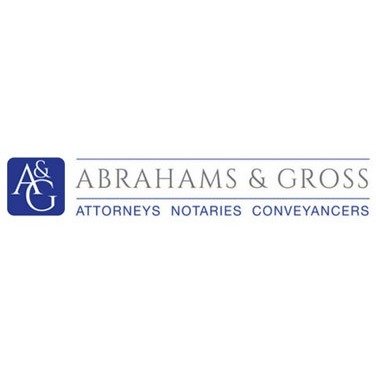Best Renewable & Alternative Energy Lawyers in Cape Town
Share your needs with us, get contacted by law firms.
Free. Takes 2 min.
List of the best lawyers in Cape Town, South Africa
About Renewable & Alternative Energy Law in Cape Town, South Africa
Cape Town is leading the way in South Africa's transition towards renewable and alternative energy sources. With frequent load shedding, an increasing demand for reliable electricity, and the city's commitment to sustainability, both individuals and businesses are turning to technologies like solar, wind, and biogas. Renewable and alternative energy law in Cape Town governs how energy is generated, supplied, and sold, as well as the environmental and technical standards that must be followed. These laws also set out the requirements for permits, licensing, and potential incentives for those who invest in cleaner energy solutions.
Why You May Need a Lawyer
Engaging a lawyer who specializes in renewable and alternative energy can be critical in several situations. You may need legal guidance when navigating complex government regulations around solar panel installation or grid connection. Property owners might encounter legal issues related to zoning, building approvals, and neighbor consent. Urban businesses may have questions about selling excess electricity back to the grid or entering into power purchase agreements. Disputes can also arise between developers, contractors, or utility providers regarding compliance, performance, or payment. Furthermore, evolving local laws, environmental compliance requirements, and new incentive programs can create challenges that a lawyer can help clarify.
Local Laws Overview
Cape Town’s legal framework for renewable and alternative energy is primarily shaped by national legislation, municipal bylaws, and regulations from agencies such as the National Energy Regulator of South Africa (NERSA) and the Department of Mineral Resources and Energy. Key aspects include:
- Licensing and registration requirements for generating electricity and connecting to the municipal grid
- Building and planning regulations for installing solar PV systems, including rooftop solar and battery storage
- Rules for selling excess power, including feed-in tariffs and standard offers by the City of Cape Town
- Environmental assessment obligations for larger or commercial projects, governed by the National Environmental Management Act (NEMA)
- Consumer protection statutes regarding the quality and safety of installations
- Recent policy amendments to enable wheeling and third-party sales using the city's grid
Municipal bylaws, such as the City of Cape Town's Municipal Electricity Supply Bylaw, also provide detailed provisions governing applications, approvals, technical standards, and the role of the City as both a regulator and a participant in local power generation.
Frequently Asked Questions
What types of renewable energy are most common in Cape Town?
Solar photovoltaic (PV) energy is the most widely used, followed by small-scale wind and biogas systems. Solar water heaters are also popular for residential use.
Do I need approval to install a solar panel system on my property?
Yes, most installations require approval from the City of Cape Town, including compliance with building regulations and registration with the municipal grid if you intend to feed electricity back into the system.
Can I sell excess electricity from my solar system to the City of Cape Town?
Yes, subject to certain technical and safety standards. The City runs a programme that allows approved customers to feed excess electricity into the municipal grid and receive credits on their electricity accounts.
Are there incentives or grants available for renewable energy projects?
Various incentives, rebates, and financing options are sometimes available through government initiatives or banks. These programmes change over time, so it's important to check for current offerings.
What legal permits do I need for a commercial renewable energy project?
You may need an electricity generation license or exemption from NERSA, environmental authorisations under NEMA, municipal building approvals, and compliance with health and safety standards.
How are disputes in renewable energy contracts resolved?
Many contracts prescribe mediation or arbitration for disputes, but some matters may require litigation in South African courts, particularly for issues around regulatory compliance or large damages.
Can homeowners associations restrict solar panel installations?
Homeowners associations may have rules affecting the installation and appearance of solar systems. However, these rules cannot unreasonably restrict owners from implementing measures that improve energy efficiency.
What are the environmental compliance requirements for energy projects?
Projects are evaluated under the National Environmental Management Act. Large-scale or commercial projects typically require an Environmental Impact Assessment and ongoing compliance with approved management plans.
Is it possible to participate in power wheeling in Cape Town?
Yes, the City has enabled power wheeling, which allows electricity generated at one point to be used at another location via the municipal grid, mostly for qualifying commercial entities.
Who is responsible for maintenance and safety of renewable energy systems?
The owner of the system is responsible for its maintenance and safe operation. Installers must also be properly accredited and follow technical and safety standards set by law and the SABS (South African Bureau of Standards).
Additional Resources
If you need further information, the following resources and organizations can be valuable:
- City of Cape Town Energy Department and Solar PV Service Desk
- National Energy Regulator of South Africa (NERSA)
- Department of Mineral Resources and Energy
- South African Photovoltaic Industry Association (SAPVIA)
- South African Renewable Energy Technology Centre
- National Cleaner Production Centre South Africa
- Environmental Affairs branch at the Western Cape Government
- GreenCape (support and market intelligence for green economy sector)
Next Steps
If you believe you require legal help with a renewable or alternative energy matter in Cape Town:
- Gather all relevant documents, including plans, permits, contracts, and correspondence
- Write down your questions and concerns to clarify your needs
- Consult with a specialist lawyer or law firm with experience in energy or environmental law
- Ask about fees, timelines, and likely outcomes before engaging their services
- If your issue involves municipal applications, also consult the relevant Cape Town City department or service desk
Being informed and seeking timely legal advice can help you avoid pitfalls and maximise the benefits of renewable and alternative energy investments in Cape Town.
Lawzana helps you find the best lawyers and law firms in Cape Town through a curated and pre-screened list of qualified legal professionals. Our platform offers rankings and detailed profiles of attorneys and law firms, allowing you to compare based on practice areas, including Renewable & Alternative Energy, experience, and client feedback.
Each profile includes a description of the firm's areas of practice, client reviews, team members and partners, year of establishment, spoken languages, office locations, contact information, social media presence, and any published articles or resources. Most firms on our platform speak English and are experienced in both local and international legal matters.
Get a quote from top-rated law firms in Cape Town, South Africa — quickly, securely, and without unnecessary hassle.
Disclaimer:
The information provided on this page is for general informational purposes only and does not constitute legal advice. While we strive to ensure the accuracy and relevance of the content, legal information may change over time, and interpretations of the law can vary. You should always consult with a qualified legal professional for advice specific to your situation.
We disclaim all liability for actions taken or not taken based on the content of this page. If you believe any information is incorrect or outdated, please contact us, and we will review and update it where appropriate.
















